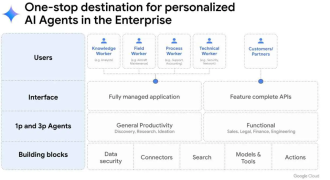
Cadence Design Systems recently launched Fem.AI, an initiative to address the persistent underrepresentation of women in artificial intelligence. Cadence has committed $20 million over the next decade to the program. The program aims to create a more equitable tech sector by focusing on education, career pathways and leadership opportunities for women in AI.
The Fem.AI initiative comes at a time when the AI field is experiencing rapid growth yet continues to struggle with a significant gender gap. Cadence’s initial research indicates several “leakage points” in the pipeline where women are disproportionately lost. These include low rates of women in North America graduating with computer science degrees—only 20% in 2021—and difficulties securing AI-related jobs after graduation. Furthermore, 56% of women leave the tech industry before reaching the midpoint of their careers.
“Achieving true innovation in the current AI revolution requires the full participation of talented individuals, and too many women are slipping through the cracks of the AI pipeline,” said Dr. Anirudh Devgan, president and CEO of Cadence. “Cadence is committed to shrinking the gender gap in AI through Fem.AI, and we hope to be a catalyst within the tech industry by calling for gender equity in the AI workforce and beyond.”

Cadence Kicks Off National Women In AI Month At Fem.AI Summit
To further solidify its commitment to gender equity in AI, Cadence hosted the inaugural Fem.AI Summit on October 1 in Menlo Park, California, coinciding with National Women in AI Month. I attended this event, which brought together leaders from various sectors, including AI experts such as ethicist Dr. Joy Buolamwini and other prominent figures like Dr. Chelsea Clinton, to foster cross-sector collaboration and address the critical need for greater gender diversity in the field.
Throughout the event and in panel discussions, the overall sentiment was clear: diverse teams are better equipped to identify and mitigate biases in AI systems, leading to fairer outcomes. Many of my conversations and observations at the event underscored the belief that diverse perspectives foster more robust AI solutions and inclusive development practices that ensure AI technologies serve all demographics. The importance of AI literacy for policymakers and developers, along with the need for international standards to ensure responsible AI development, were also key themes discussed. Ultimately, the Fem.AI Summit served as a powerful call to action for the tech industry and beyond, with a clear message: inclusivity in AI is crucial for both innovation and ethics.
Cadence’s initiative bolsters efforts such as Unesco’s Women4Ethical AI, which strives to ensure women’s full participation in the development and use of technology. Unesco’s research shows that women and girls are 25% less likely than men to have basic digital skills, four times less likely to know programming and 13 times less likely to hold ICT patents. This disparity shows up in the AI field, with women occupying just 20% of technical roles in machine learning, 12% of global AI research positions and 6% of software development jobs.
Despite efforts to improve gender balance in the tech industry, progress remains slow. Fem.AI aims to combat these challenges through a multipronged approach. The initiative will focus on building partnerships with organizations that promote women in STEM, providing resources (including mentorships and returnships) to support women in AI careers and funding scholarships for women pursuing AI-related education. Cadence also plans to leverage its existing academic network to create further opportunities for women in the field.
Propelling An Industrywide Movement With The Fem.AI Alliance
To maximize impact, Cadence has actively encouraged tech industry involvement via the Fem.AI Alliance. Nvidia, Workday, Equinix and NetApp are among the first companies to join, signaling a potential trend of industrywide commitment to addressing gender imbalance in AI. This collaborative approach is crucial in driving meaningful change and creating a more inclusive environment.
The potential consequences of failing to address the gender gap in AI also cannot be overlooked. Cadence’s senior vice president of global human resources, Tina Jones, warned, “If women continue to be left out, the effects will hinder innovation and exacerbate current labor shortages in the high-tech sector.” Jones emphasized that Fem.AI is not just a standalone initiative but rather “part of Cadence’s ongoing commitment to propelling women in STEM and other inclusion initiatives at the core of the company.” She reiterated the company’s belief that “innovation thrives when diverse perspectives come together.”
Taking The Fem.AI Movement Forward
Fem.AI represents a significant step towards addressing the gender gap in AI, and I found the Fem.AI Summit inspiring. With a substantial financial commitment, strategic partnerships and a focus on industry collaboration, the initiative has the potential to create meaningful change. By investing in programs that support women throughout their AI careers, from college education all the way to leadership roles, Cadence is putting its money where its mouth is to increase female representation and foster a more inclusive AI landscape. The same goes for its partner organizations, and broad industry participation will be crucial to ensure long-term success as Fem.AI’s programs address the complex challenges women face in this field. The initiative’s commitment to ongoing assessment and adaptation will also be key to maximizing its lasting impact.
This is more than just an initiative; it’s a spark that could ignite a much-needed transformation in the AI field. I eagerly anticipate witnessing the progress of Fem.AI and the ripple effect it creates, inspiring other industry leaders to embrace the power of inclusivity and unlock the full potential of women in AI and beyond.























































































